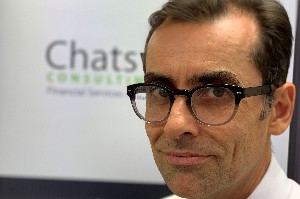The struggle to be better at telling the story of insurance
I’m not really a writer, I’m a consultant that loves data and enjoys understanding the buying process so I can, hopefully, advise others on the marketing issues it exposes.
Monday, February 10th 2020, 8:00AM

To follow up on my previous piece here at Good Returns I wanted to share some of the struggle of telling the insurance story. My first problem was that although I often come armed with good data, that doesn’t count. The traditional wisdom is that "numbers are numbing, it’s the story that reaches people".
Although I can tell you that 38% of households in Auckland are now "multi-adult" homes it is far more powerful to explain that I have several friends who have their 30-year-old kids living with them to help them save up the large deposits now required.
Although I can tell you that two in three disabilities are caused by sickness, not accident, it is far more meaningful to relate a friend’s experience of being diagnosed with breast cancer at 36 and her struggle to work while on a tough chemo treatment cycle.
Although I can tell you that the chance of suffering a disablement of six month’s duration during a working life is over 25%, it is far more powerful to use real claims examples. A man with a frozen shoulder who could no longer work as a mechanic, a woman with a head injury who kept forgetting who she was meeting and what it was about … and so on.
People hate maths and love stories.
Almost everyone knows someone who has had a cancer diagnosis. We can imagine how a guy can look okay, but not be able to lift his arms above his head and how that affects work. We can see in our mind’s eye how hard it would be to work with a memory problem.
Communication also requires us to delve into the bag of hard questions. Do you know what the sickness benefit is? Would you be eligible for that? What did you spend last month? How big is your emergency fund? Would that cover six months’ expenditure?
Telling claims stories is important. Although insurers keep records of claims and publish them, nothing is so powerful as looking at an adviser website and seeing a picture of a person you know – from your community – endorsing their adviser because of a claim paid. Most people are so grateful for their insurance at claim time that they are very happy to help. But they are your clients, not mine.
So, if you want to offset some of the relentlessly negative media around insurance, please help us out and go and interview the last person you helped. That’s a powerful story.
| « It's time we got out and told the good story about insurance | Partners life changes may not be big enough » |
Special Offers
Comments from our readers
No comments yet
Sign In to add your comment
| Printable version | Email to a friend |


